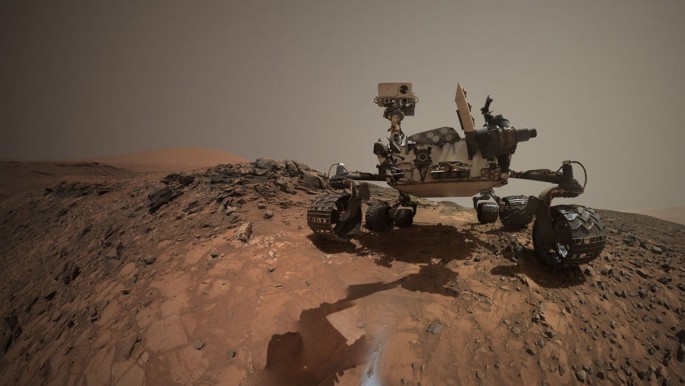NASA's Mars Curiosity rover has captured an awe inspiring selfie this August, shortly after it continued its traverse up a massive mountain on the Red Planet.
The Curiosity rover has captured several low angle shots with its camera while using its robotic arm on August 5. During that time, it was exploring Marias Pass which is a site located in the foothills of Mount Sharp that measures some 3.4 miles high.
Mission team scientists created a composite image from all the those photos and produced a glorious selfie that NASA released on Tuesday, August 18.
The one ton rover have explored Marias Pass for several weeks where it has been examining a geological contact zone to analyze two different rock samples. From its scientific suite of instruments, Curiosity used its Dynamic Albedo of Neutrons instrument to measure the high levels of hydrogen under its wheels in the region.
This abundant presence of hydrogen suggests that there are plenty of water molecules that can produce minerals into rocks in the region.
According to Curiosity's DAN principal investigator, Igor Mitrofanov from the Space Research Institute in Moscow, the ground beneath the rover's wheels, some 3.3 feet down below in that area, actually holds three to four times much water than any place Curiosity has been to in its three years on the Red Planet.
For its rock sample analysis, Curiosity has drilled samples into powder form from a rock in Marias Pass called Buckskin where the mission team hopes to obtain crucial data why the Marias Pass region is really "wet".
After suffering from a short circuit in Curiosity's drill hammering mechanism in February, these Buckskin samples are the rover's first major drilling work since its accident. According to deputy project manager of Curiosity, Steven Lee of NASA's Jet Propulsion Laboratory, the team is glad that the rover did not suffer again from any short circuits during its Buckskin drilling and also during the sample transfer.
Lee adds that the short circuit may return but the team already made important changes in its fault protection to safely drill in the most even manner even if there are minor shorts. The drill percussion circuit telemetry has also been improved to acquire more diagnostic data about any future technical events.
On August 12, Curiosity finally completed its work on Marias Pass where it is now headed more into the reaches of Mount Sharp where it began climbing its base last September 2014. As Curiosity heads up towards the mountain's lower reaches, it will record a history of changing environmental conditions on Mars that are manifested in its rocks.



























